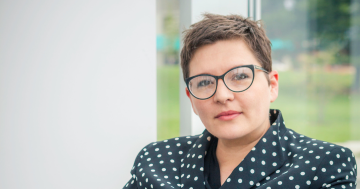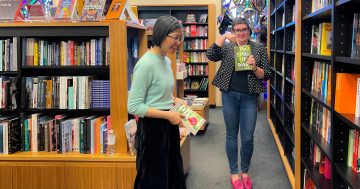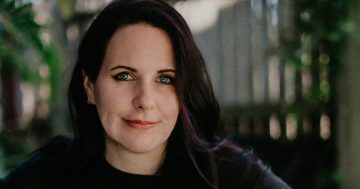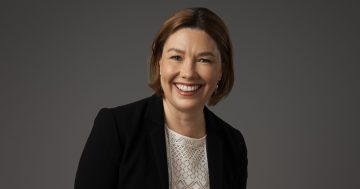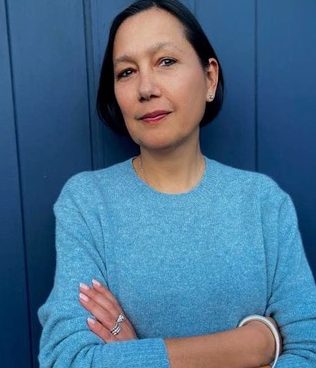
Jeanne Ryckmans. Photo: Supplied.
Canberra Writers Festival artistic director Jeanne Ryckmans is the first person to admit the past two years have been a saga.
COVID-19 hit hard in 2020 and the festival was among the first in Australia to trial a hybrid model in response, substituting its usual glittering array of international guests with live Zoom sessions and interactive events that hopped time zones and travel restrictions.
This year, the pandemic struck again and as state borders remained closed around the country, the festival took the hard decision a few weeks ago to postpone their plans until 2022.
They’d been hopeful about a spring event, but Jeanne says audience safety and the continuing uncertainty about interstate travel made anything this year just too hard.
“The silver lining has been the realisation we could make events work in many different ways,” she says. “Last year, we brought some extraordinary authors to Canberra via Zoom and it worked brilliantly because nobody was going anywhere. We could cherry-pick authors who were very unlikely to fly to Canberra.”
This year, Zoom fatigue has set in so Jeanne and the festival team have taken a brilliant program – centred as always around power, passion and politics – and will transfer it as completely as possible to 2022.
The opening and closing night plans are intact, and Jeanne says she is also conscious of the need to give authors who could not tour because of the pandemic their moment to shine. Festivals are an important way to expose audiences to new writers, to develop sales and engage readers.
“We’ll create some opportunities for authors who are publishing in the first quarter of next year, and also make sure people who published during the pandemic don’t miss out,” says Jeanne.
“Their books are also timely. Fiction, in particular, doesn’t date and writers have important things to say about the state of the world that we think need to be put before an audience.”
The health and wellbeing of the festival’s audience and participants will still be first and foremost, but the postponement also creates a breathing space while vaccination targets are met and festivals work out how to manage post-pandemic health requirements.
Jeanne says the festival’s board, local supporters and volunteers have all been proactive and optimistic about the changes.
“Everyone understood this was well beyond our control, and it would be folly and irresponsible to stage an event in complete uncertainty,” she says.
The festival runs on huge goodwill among the literary community – “On the smell of an oily rag,” says Jeanne – and that means next year will be challenging.
“We are so lucky to be able to even do this,” she says. “We’ll need to tighten our belts, but I personally like a challenge.
“The message is to encourage people to keep reading. When bookstores open, support your local bookseller. Buy, read and enjoy books.
“If we can keep football going, it’s important we keep the literary community engaged. And we hope that in August next year we can actually stage a festival.”












